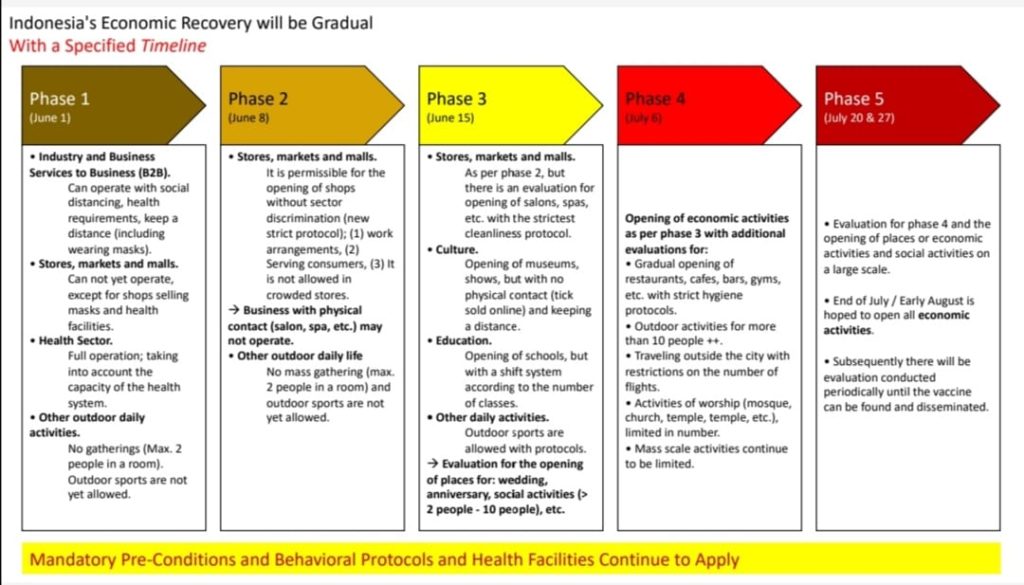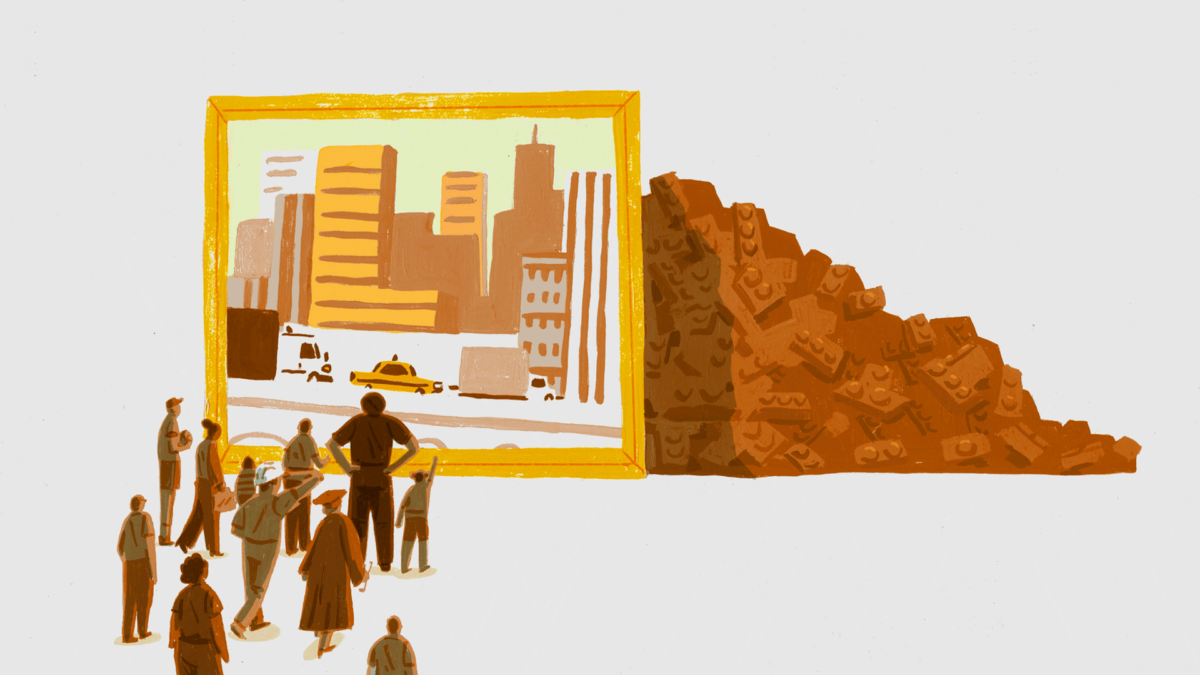Indonesia has joined a growing number of countries around the world that are preparing to reopen their economies to prevent large-scale social and economic impairment.
Needing to balance between long-term devaluation of economic growth and mitigating a public health crisis, President Joko Widodo’s government has announced a 5 stages gradual reopening of business activities starting June 1. The first phase will involve relaxing restriction on industries and business to business activities that do not need direct contact with the public.
In an online meeting in early May, Coordinating Economics Minister Airlangga Hartarto noted that the government needs to reopen the economy to starve off large scale unemployment and possible bankruptcies as companies struggle to stay afloat amidst the Covid-19 pandemic.
Under the phased reopening, the government hopes to have the economy up and running by the end of July or early August.
The prolonged partial lockdown – which started on April 10 and is scheduled to end on May 22 – has brought economic activity to a standstill. Up to May 1, as many as 2.08 million Indonesians has lost their jobs and more than 100,000 companies have been impacted by the pandemic, according to figures from the Ministry of Manpower.

Economists and business leaders fear that Indonesia’s economy could be heading towards long-term economic impairment as the country’s consumption driven growth over the past few years comes to a grinding halt.
Sectors such as real estate, retail, aviation, tourism and hospitality face a long uphill climb to get back to sustained growth. As a result, Indonesia’s US$1 trillion economy could be facing a contraction for the first time in more than 20 years as the economic pie shrinks.
Dendi Ramdani, an economist at Bank Mandiri, Indonesia’s largest state-owned bank, predicted that Indonesia’s GDP will grow at 2% this year, sharply down from the 5.1% in 2019. But he notes that any growth will be largely dependent on how quickly the government can contain the spread of the coronavirus in the country and the resulting economic bounce.
“There is a scenario where the infections will drop sharply only in the 4th quarter,” Mr Ramdani said. “The rate of economic recovery is thus subject to existing pre-conditions in the country and if the government is in too much of a hurry to open up, there might be a second wave.”
David Samuel, economist at Bank Central Asia, the country’s largest private bank, however is less bullish noting that GDP growth will be flat at best and -2% at the lower end. “My view is that the recovery pattern will be much slower than anticipated as the government is focusing on reopening sectors such as manufacturing where jobs are not as severely impacted.”
Against this backdrop, business leaders are being forced to change their business operations and adapt quickly to the changing conditions, noted Shinta Kamdani, CEO of Sintesa Group and vice chairperson of the Indonesian Chamber of Commerce and Industry (Kadin).
“We are transforming to the new normal as businesses focus on internal restructuring to survive today and rebound and recover for the post Covid-19 environment,” she added.
Mrs Kamdani noted that Kadin is now in close discussions with the government to prepare a stimulus package and a program for economic recovery. “We are identifying sectors that are badly impacted and finding ways to channel more assistance to these companies so they can continue to operate.”
But she admitted that coordination between the line ministries and between the central government and regional governments remains a daunting challenge. This has always been Indonesia’s Achilles heel when it comes to implementing large scale policies.
She revealed that a new stimulus package was being discussed and would be announced soon but declined to provide details.
Business owners and executives welcomed the government’s pro-active move to kick-start the economy albeit in a cautious manner. Muhammad Feriadi, president director of JNE Eka Kurir, one of the largest logistics companies in the country, noted that economic recovery is critical not just for his business but overall social wellbeing.
“I hope the economic recovery program can be implemented well as government and business need to work more closely together,” Mr Feriadi said. “We are fully supportive of the government’s gradual economic recovery timeline as we need to restart our business activities.”
The logistics sector has been exempted from the partial lockdown and travel ban given its critical role in the economy. But even so, many smaller players are facing mounting financial difficulties, putting some 1.3 million jobs at risk.
As the national focus shifts from preventing a national health catastrophe to saving the economy, both government officials as well as businesses are preparing for the post Covid-19 world. While there is optimism in the economy rebounding, there is also deep caution in the understanding that it will not be a smooth ride back to the new normal.

